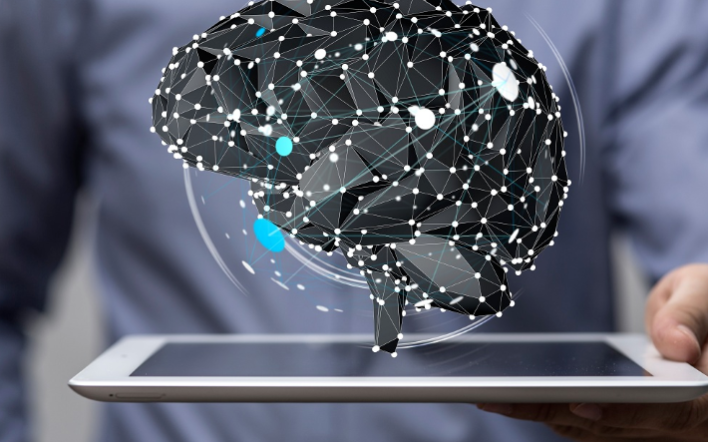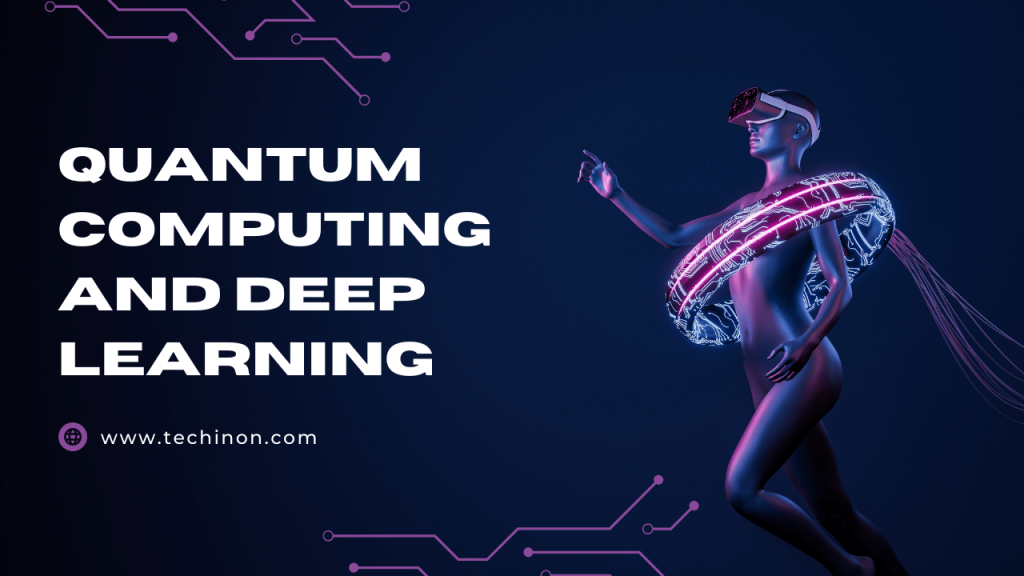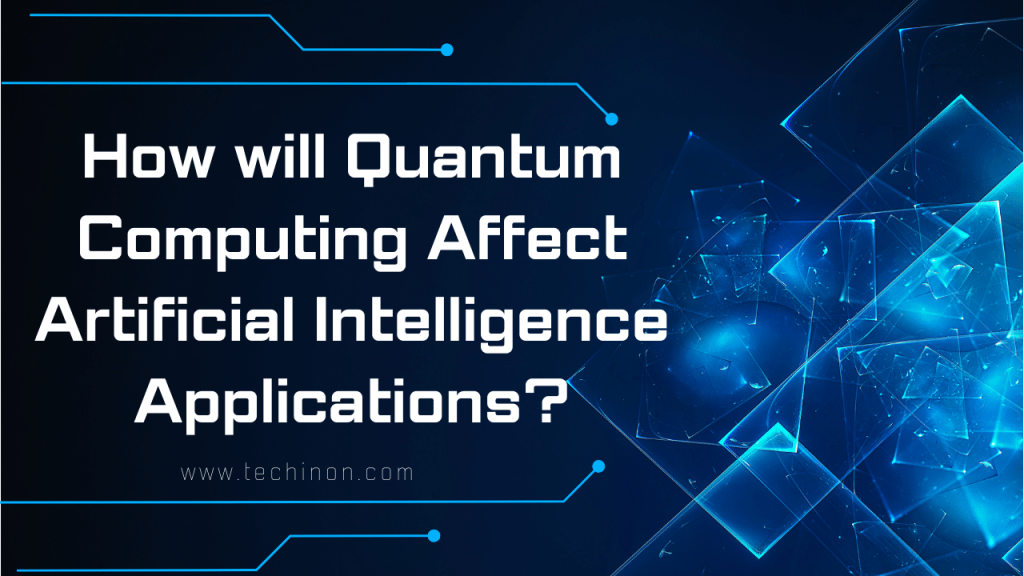Welcome to a compelling exploration of ‘How will Quantum Computing Affect Artificial Intelligence Applications?’ – a subject that demands attention in today’s fast-paced world. Discover key insights, gain new perspectives, and find answers to your burning questions in this must-read article.
1. The New Quantum-AI Paradigm
When we think about the most transformational technologies of the 21st century, artificial intelligence (AI) and quantum computing emerge as front-runners. With quantum computing, we’re tapping into the mystifying realm of quantum physics to create machines with unprecedented computational capabilities. When the mind-boggling power of quantum computing meets the sophistication of AI, we’re looking at a new technological paradigm that will revolutionize how we live and work.
Quantum computing’s influence on AI promises to rewrite the rules, solving problems previously deemed impossible and pushing the boundaries of what AI can achieve.
2. The Quantum-AI Synergy: Promising Prospects

Quantum-enhanced artificial intelligence is more than just a theoretical concept. Quantum algorithms for AI have already demonstrated their potential in early-stage research and development. This amalgamation of technologies stands to enhance AI applications in various domains, from quantum machine learning to quantum neural networks.
A key aspect of AI applications, machine learning, involves training models on vast amounts of data. Conventional AI systems can sometimes falter under this load. This is where quantum computing swoops in, promising to speed up AI training processes, drastically reducing computational times.
Moreover, quantum computing can offer a unique angle on AI and quantum computing synergy. Quantum AI research points toward the development of quantum algorithms that can find solutions across a vast range of possibilities faster than classical algorithms, making it especially beneficial for optimization tasks.
3. Unleashing AI’s Full Potential

What makes quantum computing so attractive to AI practitioners? Quantum computing can, in theory, process an astronomical amount of data faster than any classical computer, due to its inherent ability to exist in multiple states simultaneously. The implications for AI optimization are profound.
Imagine advanced AI models capable of making more accurate predictions, faster and more efficient machine learning processes, and a significant boost in the development of intelligent systems.
This is not science fiction; it’s an impending reality. AI’s potential gets a tremendous boost when combined with quantum computing. In quantum AI potential, we glimpse a future where artificial intelligence is faster, more efficient, and more capable than ever before.
4. Quantum Computing and Deep Learning: A Match Made in Tech Heaven

Deep learning, a subset of machine learning, involves artificial neural networks with various layers (“deep” structures) that model the human brain’s workings. Deep learning systems can learn from vast amounts of unstructured data, making them invaluable in today’s data-driven world.
When quantum computing meets deep learning, we’re looking at an exponential increase in processing power. Quantum deep learning networks could potentially sort through mountains of data at lightning speed, drastically improving the AI’s performance.
5. Quantum AI and Natural Language Processing: Bridging the Human-Machine Divide
Natural language processing (NLP) is another crucial AI application that stands to benefit from quantum computing. This technology involves computers understanding and generating human language, which is critical for applications like voice assistants, chatbots, and automated customer service.
Quantum computing could transform NLP by enabling more sophisticated language models that comprehend and generate human language more naturally and accurately. This technology could ultimately bridge the human-machine divide, creating AI that understands and communicates with humans more efficiently and naturally.
6. Looking Ahead: Quantum AI Future Prospects
While the integration of quantum computing and AI is in its early stages, the potential is electrifying.
Imagine a world where quantum-enhanced AI can model complex climate systems for accurate long-term forecasts, optimize traffic in real time for smart cities, and even revolutionize drug discovery by simulating molecular interactions at a speed and scale currently unimaginable.
But, it’s not just about future prospects. Quantum computing is already making its mark in AI. Real-world examples of quantum computing enhancing AI applications have emerged, pointing to a bright future where the power of quantum computing will be harnessed to solve complex AI problems more efficiently.
7. The Quantum Leap in Intelligent Systems
One promising application of quantum computing in AI is in the creation of highly intelligent systems. These systems leverage quantum principles to mimic the brain’s behavior, often referred to as quantum neural networks.
Unlike classical neural networks, which use binary bits (either 0 or 1), quantum neural networks utilize quantum bits, or qubits, that can exist in multiple states at once. This multiplicity allows for the handling of vast amounts of data with unprecedented efficiency.
This leads to significant advancements in AI, including improved pattern recognition, faster information processing, and the ability to draw more complex inferences from data. These enhancements pave the way for highly sophisticated AI systems capable of carrying out intricate tasks, such as real-time decision-making, high-end research, and even creative problem-solving.
8. Quantum Computing Advancements in AI Optimization
In AI, optimization is a critical process that aims to find the best solution from all feasible solutions. However, as the size and complexity of the problem increase, traditional AI methods may fail to provide timely and optimal solutions.
Quantum computing for AI optimization offers a solution to this challenge. The inherent nature of quantum computing allows for the exploration of multiple possibilities simultaneously, providing optimized solutions at a much faster rate. Quantum-enhanced optimization algorithms have potential applications in various sectors, including logistics, energy, finance, and healthcare.
9. Quantum Computing: The Future of Problem-Solving in AI
Quantum computing’s role in AI problem-solving is expected to be game-changing. Quantum computing could help overcome the limitations of classical computers, such as handling large and complex problems and significantly reducing the time required to find solutions.
Take, for example, the traveling salesman problem, a classic algorithmic problem in the field of optimization. As the number of cities (nodes) increases, the problem’s complexity increases exponentially, making it hard for classical computers to solve. A quantum computer could potentially provide an optimal solution at a much faster rate, revolutionizing problem-solving in AI.
10. Quantum AI Algorithms: The Building Blocks of the Future
Quantum AI algorithms are critical in shaping the future of AI. They offer ways to utilize the power of quantum computing to improve AI performance and efficiency.
One promising algorithm is the Quantum Approximate Optimization Algorithm (QAOA), which uses quantum mechanics to solve optimization problems efficiently. Another is the Variational Quantum Eigensolver (VQE), designed to solve complex problems that involve determining the ground state of a quantum mechanical system, crucial in fields like chemistry and materials science.
11. Quantum Computing and Big Data: A Powerful Combination for AI
The explosion of big data presents both a challenge and an opportunity for AI. On the one hand, the vast amount of data generated every second provides AI with the raw material needed to learn and improve. On the other hand, this data’s size and complexity can be overwhelming for classical computers.
Quantum computing and AI form a powerful alliance that can address these challenges. By leveraging quantum computers’ parallel processing abilities, AI can analyze and draw insights from big data at a pace impossible for traditional computers.
Frequently Asked Questions About How will Quantum Computing Affect Artificial Intelligence Applications?
Q: What industries are likely to benefit the most from the synergy of quantum computing and AI?
A: Healthcare, logistics, finance, climate modeling, traffic optimization, drug discovery, and cybersecurity are among the sectors that could benefit the most.
Q: What are the challenges of implementing quantum computing in AI applications?
A: While promising, quantum computing technology is in its infancy. Practical implementation issues include the need for very low temperatures, high costs, quantum algorithm development, and quantum error correction.
Q: How can developers prepare for the integration of quantum computing into AI projects?
A: Developers should stay informed about the latest advancements in quantum computing and AI. Knowledge of quantum mechanics and a deep understanding of AI will be useful.
Q: Are there any ethical implications of using quantum computing in AI applications?
A: As with any powerful technology, ethical implications should be considered. These include privacy concerns, the digital divide, and potential misuse of technology. It is essential to have regulations and ethical guidelines in place to govern the use of quantum AI.
Q: What advancements in quantum computing hardware are necessary for better AI performance?
A: Advances in quantum hardware, such as improved qubit coherence times, error correction techniques, and scalable quantum systems, are necessary for better AI performance.
Q: How does quantum computing impact AI model interpretability?
A: Quantum computing could help improve AI model interpretability by speeding up calculations related to understanding the inner workings of complex models. However, the inherently complex nature of quantum systems could also introduce new interpretability challenges.
Also Read: How Could Quantum Computing Benefit the Financial Services Industry?
Final Words
Embracing the quantum-AI paradigm is an exciting prospect. As we stand on the brink of this technological revolution, the potential of quantum computing to boost AI applications is more than a mere hypothesis. It’s a future that’s already taking shape, and one that promises to bring profound changes to the way we interact with technology.
As we wrap up, we trust that this comprehensive exploration of “How will Quantum Computing Affect Artificial Intelligence Applications?” has equipped you with the knowledge and tools necessary to navigate its complexities with confidence.
Iva Ort is an ingenious wordsmith and captivating blogger whose tales leap off the screen and into your imagination. With a pen as her wand, she weaves enchanting stories and insightful articles, leaving readers spellbound and craving more.

